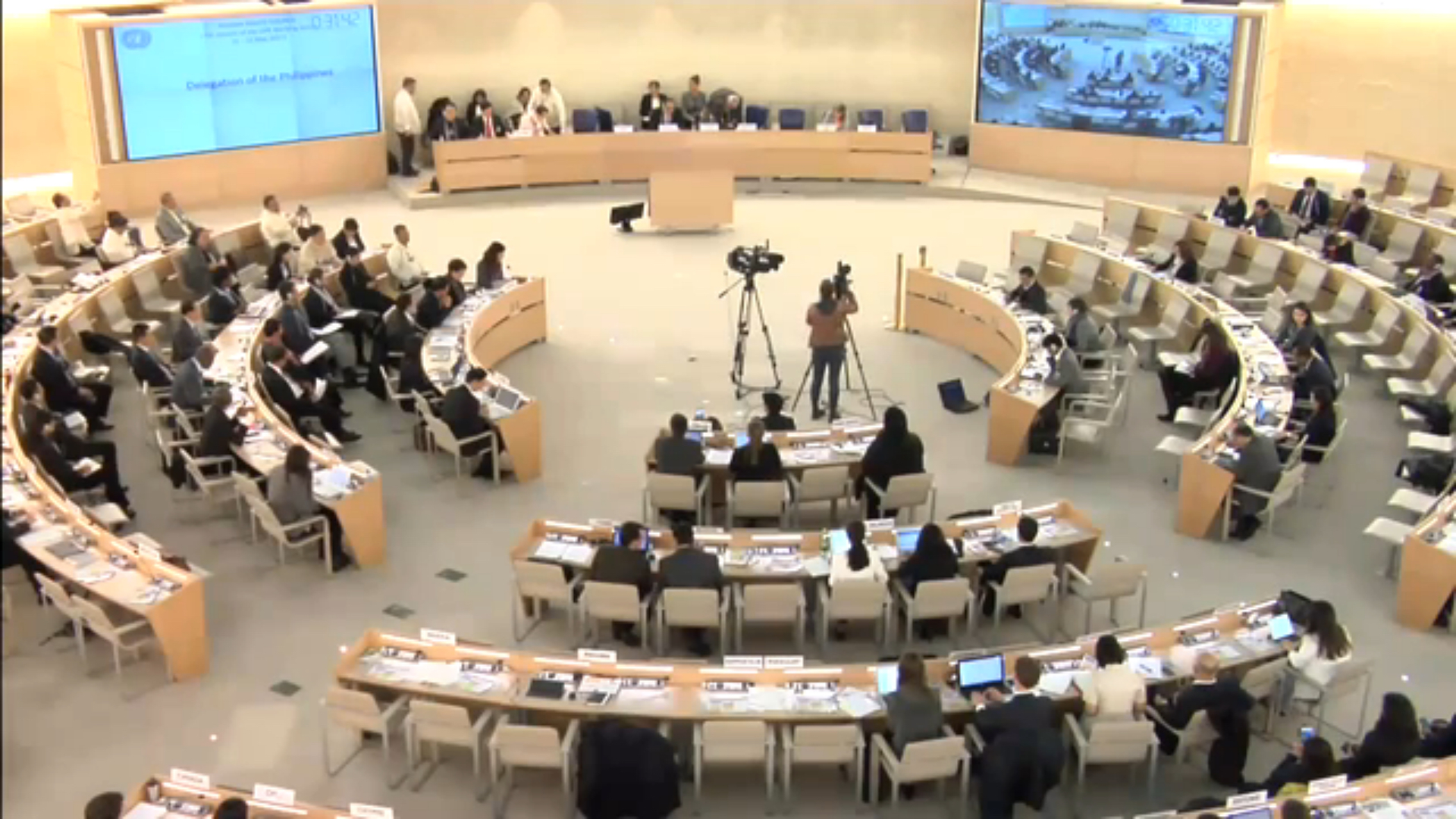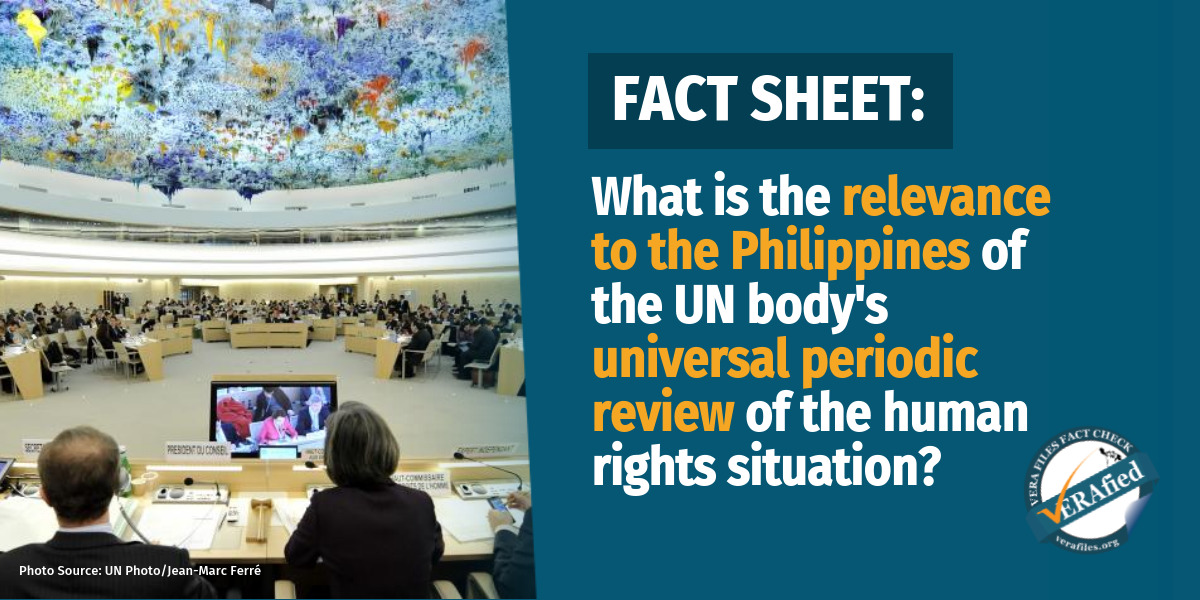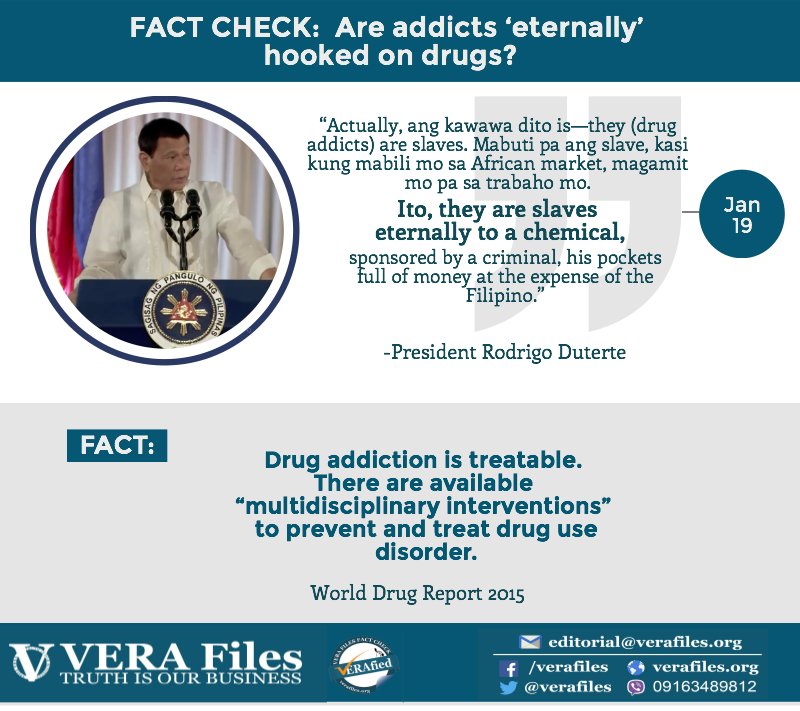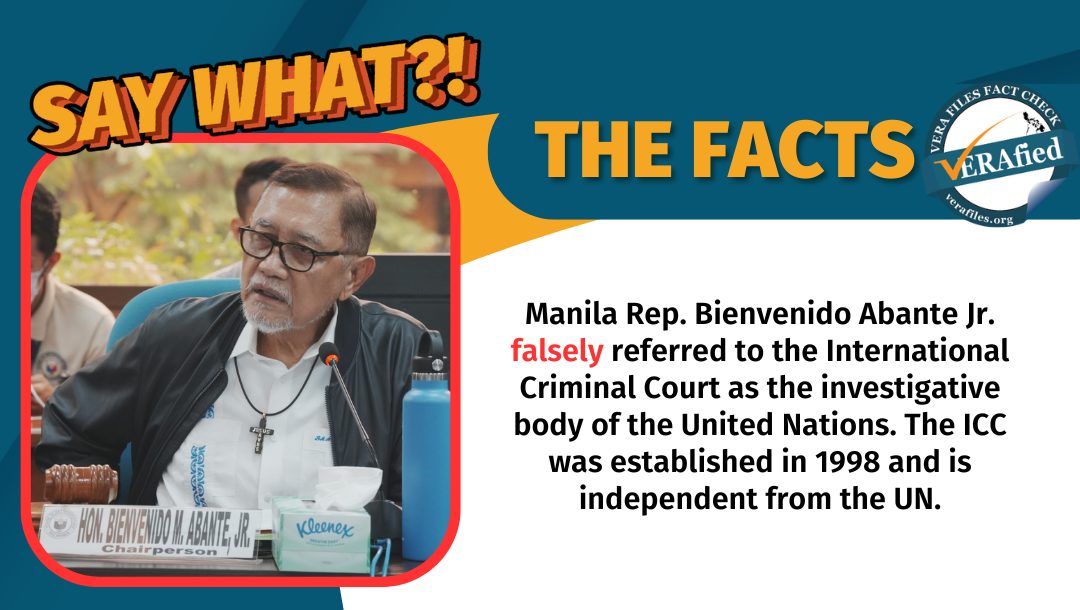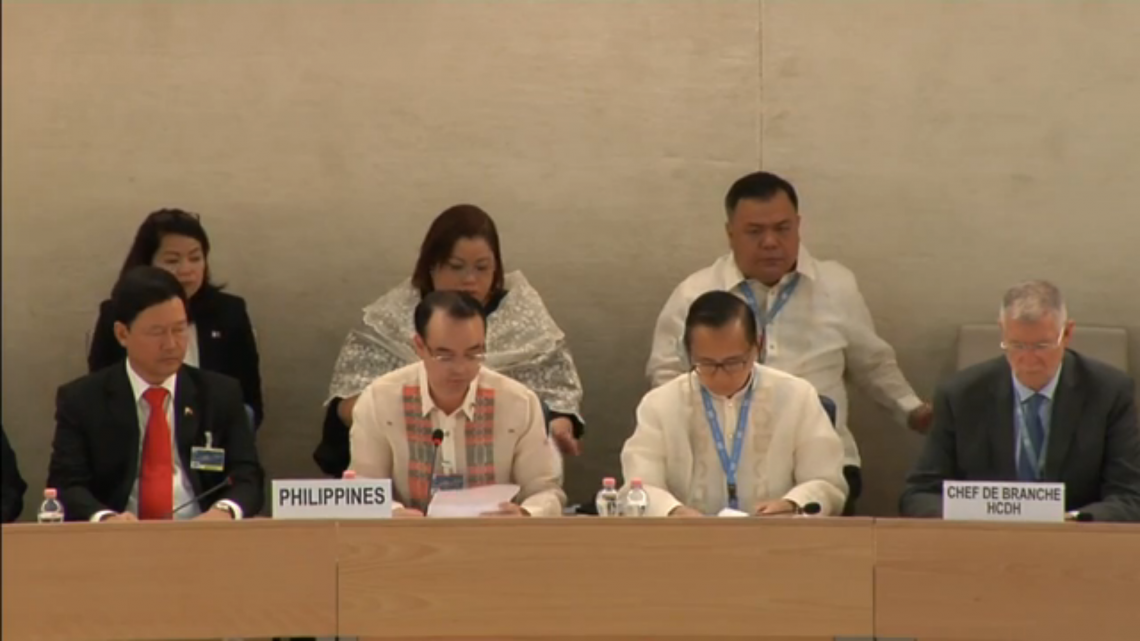
Recently-appointed DFA Secretary Alan Peter Cayetano delivers Philippines’ opening statement during the 27th Universal Periodic Review
Members of the United Nations have called on the Philippines to strengthen its judicial system to end impunity and ensure impartial investigations on killings during the 27th Universal Periodic Review last week.
During the interactive dialogue, representatives of the 95 member-states each expressed their recommendations on the country’s human rights policies, highlighting in particular the current administration’s campaign against illegal drugs.
Botswana and the United States of America recommended that the Philippines strengthen its criminal justice reform efforts to ensure a speedy and fair trial, and to comply with international standards in investigating alleged perpetrators of human trafficking, extrajudicial killing and sexual violence against women and children.
Argentina, on the other hand, urged the government to provide compensation to all victims of human rights violation and establish adequate mechanisms for rehabilitation.
France and Timor-Leste also encouraged the Philippines to strengthen the independence of the judiciary and of the judicial system.
Moreover, New Zealand recommended that the Philippines take steps to meet the minimum standards for the treatment of prisoners, while Uganda and the Republic of Korea suggested that the country reduce overcrowding and address sanitation problems in its detention facilities.
Prison overcrowding is among the problems faced by the Duterte administration when it started its war against drugs, leading to more than a million surrenderees—a number too big to be accommodated in prison cells in the Philippines.
To address this, one of the measures suggested is to expedite the cases of persons held under Republic Act 9165 or the Comprehensive Dangerous Drugs Act of 2002.
In its report to the Human Rights Council, the Philippine government said a jail decongestion mechanism is already being implemented by the Bureau of Jail Management and Penology that includes a (1) paralegal program to fast-track the adjudication of cases and (2) the construction of additional jail buildings and improvement of existing facilities,.
Meanwhile, Ireland also recommended that the country take immediate steps to combat torture in the criminal justice system, including torture in police stations to extract confessions.
In the report, it was stated that the PNP- Human Rights Affairs Office (HRAO) and Police Human Rights Officers have implemented reporting mechanisms allowing the Commission on Human Rights (CHR) to track the status of persons under police custody.
Periodic inspections of lock-up cells are also conducted every first week of the month and monthly reports are submitted to the CHR, according to the national report.
Moreover, the report states that the Bureau of Corrections strictly implements an operating manual that ensures the “protection of inmates from maltreatment, cognizant of the latter’s inherent dignity and value as human beings, and their rights and privileges.”
However, just last month, the CHR discovered a secret cell in Tondo, Manila, detaining a dozen men and women for a week, allegedly due to their involvement in illegal drugs. (Read: VERA FILES FACT SHEET: At least how many laws are violated in the PNP’s secret jail cell?)
Since 2012, only 12 personnel were formally charged for human rights violations committed against detainees, four of which were convicted, two were suspended, one demoted and one dismissed from service.
The Philippines is among the signatories of the Convention against Torture. In 2012, it also ratified its Optional Protocol.
However, five years later, a law mandating the establishment of a national preventive mechanism designed to prevent torture at the domestic level is yet to be enacted.
